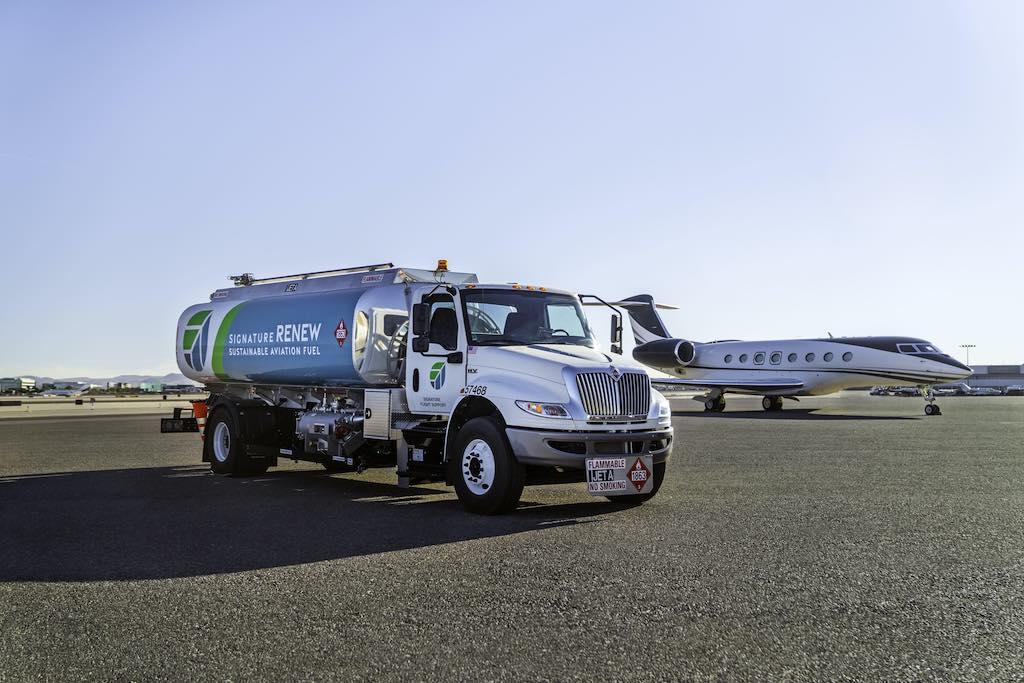
The first part of this article series is about FBO personnel and different size providers.
With the influx of new customers--many of whom will work for companies with carbon-reduction commitments, besides any strong personal feelings about environmental responsibility--one area in which FBOs might be able to carve out a competitive advantage could be provision of sustainable aviation fuel (SAF). As yet, however, while demand for lower-carbon fuel is increasing, there is little evidence to suggest that customers are choosing to fly specifically to locations where SAF is available.
Signature Flight Support offers SAF--from Neste and Air BP--in a 30/70 blend with Jet A at 12 locations globally, three of them in Europe, all of which are in the U.K.: Luton, Glasgow and Edinburgh. The bulk of the company's European SAF sales have been at Luton, which has required an average of two 32,000-litre loads per month over the past year, although in April this supply had to be doubled as demand increased around the European Easter vacation period.
Book-and-claim programs--in which a customer pays the extra required to pump SAF at a location where the fuel is not available, and the lower-carbon fuel is put into another jet at an airport that has a supply--is one way in which the sector is trying to maximize uptake of SAF while availability is geographically constrained. This is working well in the U.S. Signature offers book-and-claim to all its customers wishing to purchase SAF where the transaction takes place in the U.S.--but differences in tax regulations and rates are making the practice more difficult to implement in Europe.
Education remains key. Despite extensive and long-term efforts by pan-industry bodies and trade associations, and increasing interest from end users, it is the pilots and flight departments that still need to be convinced of the viability and safety of drop-in biofuels.
"The education process is absolutely necessary," says Brian Batty, Signature's U.S.-based director of fuel operations. "When it comes to making the decision to purchase SAF, that decision is being made in the C-suite or by the sustainability manager. They're the ones who are encouraging the use of it. [But] the pilot has to be the one who says, 'Let me make sure that I understand the product and what the impact is on the aircraft.'
"In the last year, we've had numerous conversations where the pilots will ask, 'I get that I can use it safely, but is it going to change the maintenance on my aircraft?'" he adds. "Sometimes a pilot is getting a request or a mandate from the C-suite saying, 'Look into SAF. Go carbon neutral.' But now the pilot's like, 'Well, where do I get it? Which ones are good? What should I be doing?' So, there's still an education process, and we have spent just as much time educating customers as we have in obtaining the product and getting it available to market,” says Batty.





